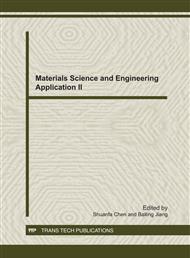[1]
Cao Fujian,Han Chunzhao,Fang Yangwang. 2006. Nonlinear theory and application. Xi'an: Xi 'an Jiaotong university press.
Google Scholar
[2]
Han Zhenxiang. 2006. Power System Analysis. Zhe Jiang: Zhejiang University Press.
Google Scholar
[3]
Deng Lansong, Shen Fei. 2004. Nonlinear time series analysis and prediction of the chaos characteristics,37 (11 ): 1022-1025.
Google Scholar
[4]
He Xinyao, Run Maode. 2007. Nonlinear theory and application. Xi' an : Xi' an Electronic Science and Technology University Press.
Google Scholar
[5]
Hong Yiguang, Chen Daizhan. 2005. Nonlinear system analysis and control. Beijing: science press.
Google Scholar
[6]
Hu Yueming. 2005. Nonlinear control system theory and application. Beijing: National Defence Industry Press.
Google Scholar
[7]
Chiang H.D., Liu C.C. 1993. Chaos in a simple power system. IEEE-PWRS, 8(3): 1407-1417.
Google Scholar
[8]
Gonzales J. A, Reyes L. I, Guerrero L.E. 2001. Exact solutions to chaotic and stochastic system. Chaos, (11): 1- 15.
Google Scholar
[9]
Huang Jie. 2005. Chaos and Its Applications. Wuhan: Wuhan University Press.
Google Scholar
[10]
Huang Yun Sheng. Chaos and Its Applications. Wuhan: Wuhan University Press, (2000).
Google Scholar
[11]
Chen Fensu. 2006. Chaos control and its application. Beijing: China Electric Power Press.
Google Scholar
[12]
Jia Hongjie, Yu Yixin, Li Peng. 2003. The relationship between Power system chaos phenomena and different instability model. Proceedings of the CSEE 23(2).
Google Scholar
[13]
Li Tianyun, Liu Zifa. 2000. Chaos characteristics and predictions of electric power system load. Relay, (11 ): 11-13.
Google Scholar
[14]
Ott. 2005. Chaos in power system. Beijing: Word Publishing Company.
Google Scholar
[15]
Li Wenlei. 2007. Robust adaptive tracking control of the uncertain chaotic power system. Electric Machines and Control, 11 (2): 170-173.
Google Scholar
[16]
Zhang Qiang. 2002. Study on nonlinear oscillations of electric power system. Electric Power Automation Equipment. 22 (5 ): 11-13.
Google Scholar
[17]
Tan C'.W., Varghese M., Varaiya P. 1995. Bifurcation, chaos, and voltage collapse in power system. Proceedings of the IEEE, 33(11): 1484-1495.
DOI: 10.1109/5.481631
Google Scholar
[18]
Zhang Huaguang, Wang Zhiliang, Huang Wei. 2003. Chaos system control theory. Shenyang: Northeast University Press.
Google Scholar
[19]
Zhang Weiguo, Yang Xiangzhong. The fuzzy control theory and application[M]. Xi'an: Northwest industry university press2000.
Google Scholar
[20]
Zhu Jin. The fuzzy control theory and application [M]. Beijing: China Machine Press,(2005).
Google Scholar
[21]
Fei Chongguo. 2003. (6) The research and application of fuzzy self-tuning controller [M]. Tianjin science and technology university master thesis: 35-47, 48-56.
Google Scholar
[22]
Zhang Huaguang, He Xiqin. 2002. The fuzzy adaptive control theory and its application[M]. Beijing: Beijing University of Aeronautics and Astronautics Press18-48, 297-311.
Google Scholar
[23]
Piao Yinguo, He Xiqin, Zhang Huaguang. 2000. A multivariable fuzzy adaptive controller[J]. EPSA(6): 105-110.
Google Scholar


